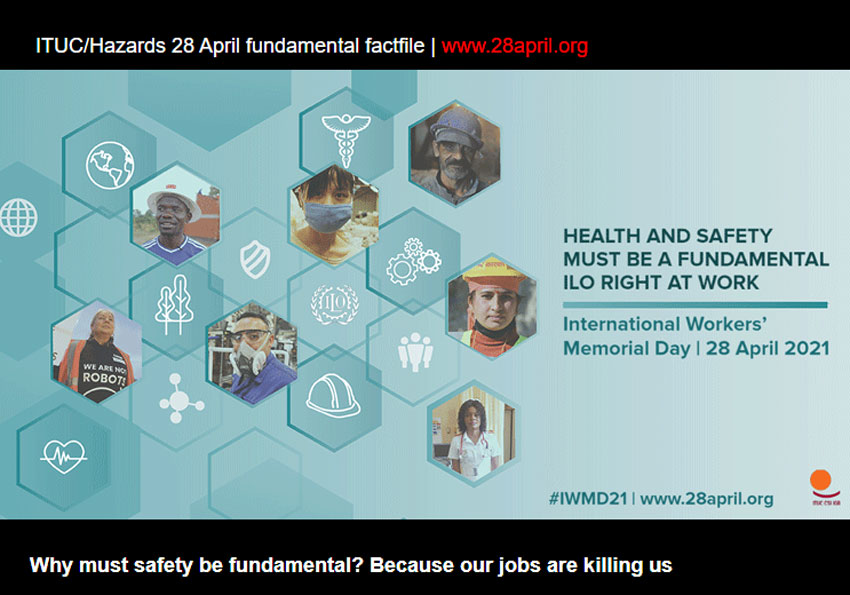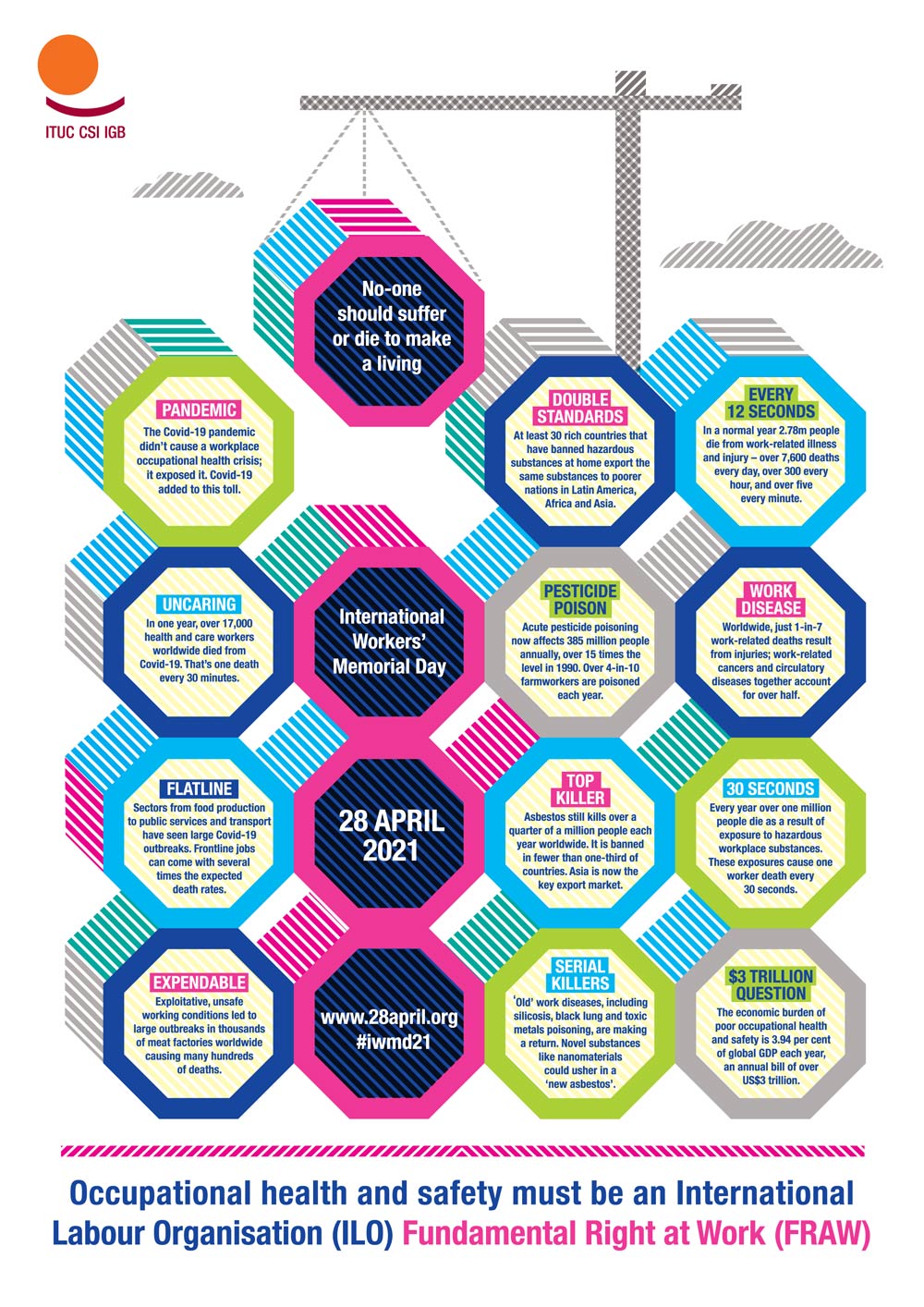
Workers’ Memorial Day is just around the corner and USMWF is hosting multiple events to honor and recognize across the United States. We would like to invite you to join USMWF at any of our events.
Sunday. APRIL 25, 2021 at 7pm cst (8pm est): USMWF’s Second Virtual National Workers’ Memorial Day Ceremony via USMWF’s Facebook;
Wednesday, APRIL 28, 2021 at 9:00am-4:00pm cst (10:00am-5:00pm est): USMWF’s Strive for Safety Workers’ Memorial Day Awareness Conference-Virtual;
Wednesday, APRIL 28, 2021 at 8:00 pm cst. (7pm est): USMWF’s Kentucky Workers’ Memorial Day Ceremony. This event will be held virtually at our USMWF Kentucky Facebook;
Wednesday, April 28, 2021 at 7:00pm cst: USMWF’s Nebraska Workers’ Memorial Day Ceremony. This event will be held in person at the Nebraska State Capitol (northsteps) at 1445 K St, Lincoln, NE 68508;
As we come together as one nation to remember the men and women that worked every day building and developing our nation to what it is today and what it will be in our future and ultimately lost their lives due to work related incidents, illnesses or diseases. Going to work should not be a grave mistake and yet thousands of lives are lost each year leaving family member victims behind to deal with the everlasting devastation and grief. We come together as one on this day to recognize the amazing workers that will have a everlasting footprint on our nation.
Continue to check back as more details become available regarding our upcoming events.



 An
An 
 Congress has adopted the ETUC (European Trade Union Confederation) slogan for this year’s International Workers’ Memorial Day which is “Workplace health and safety – it’s your right”.
Congress has adopted the ETUC (European Trade Union Confederation) slogan for this year’s International Workers’ Memorial Day which is “Workplace health and safety – it’s your right”.